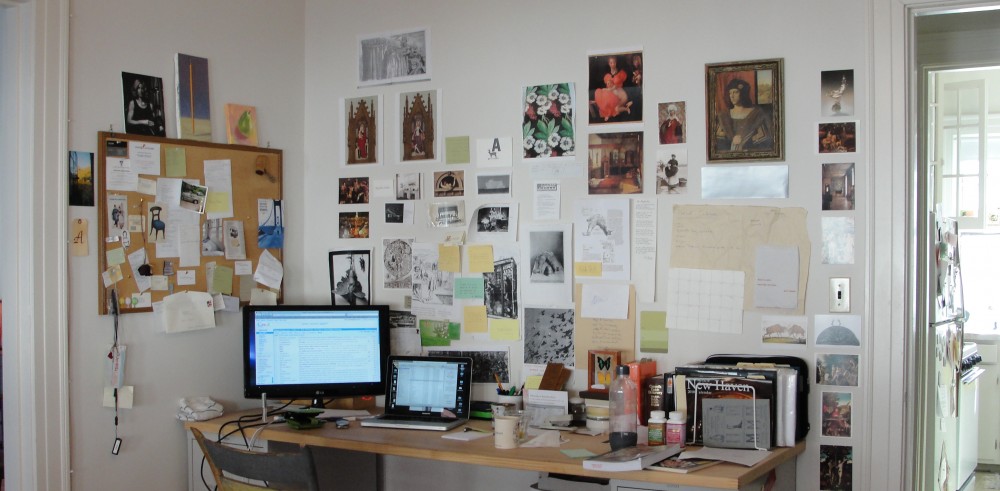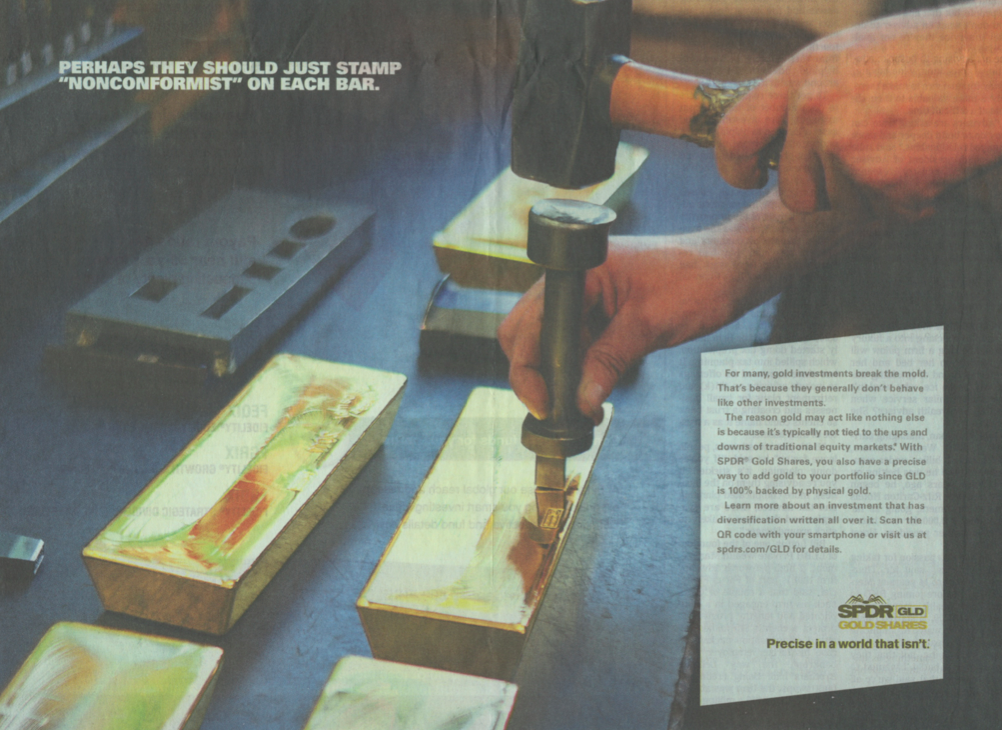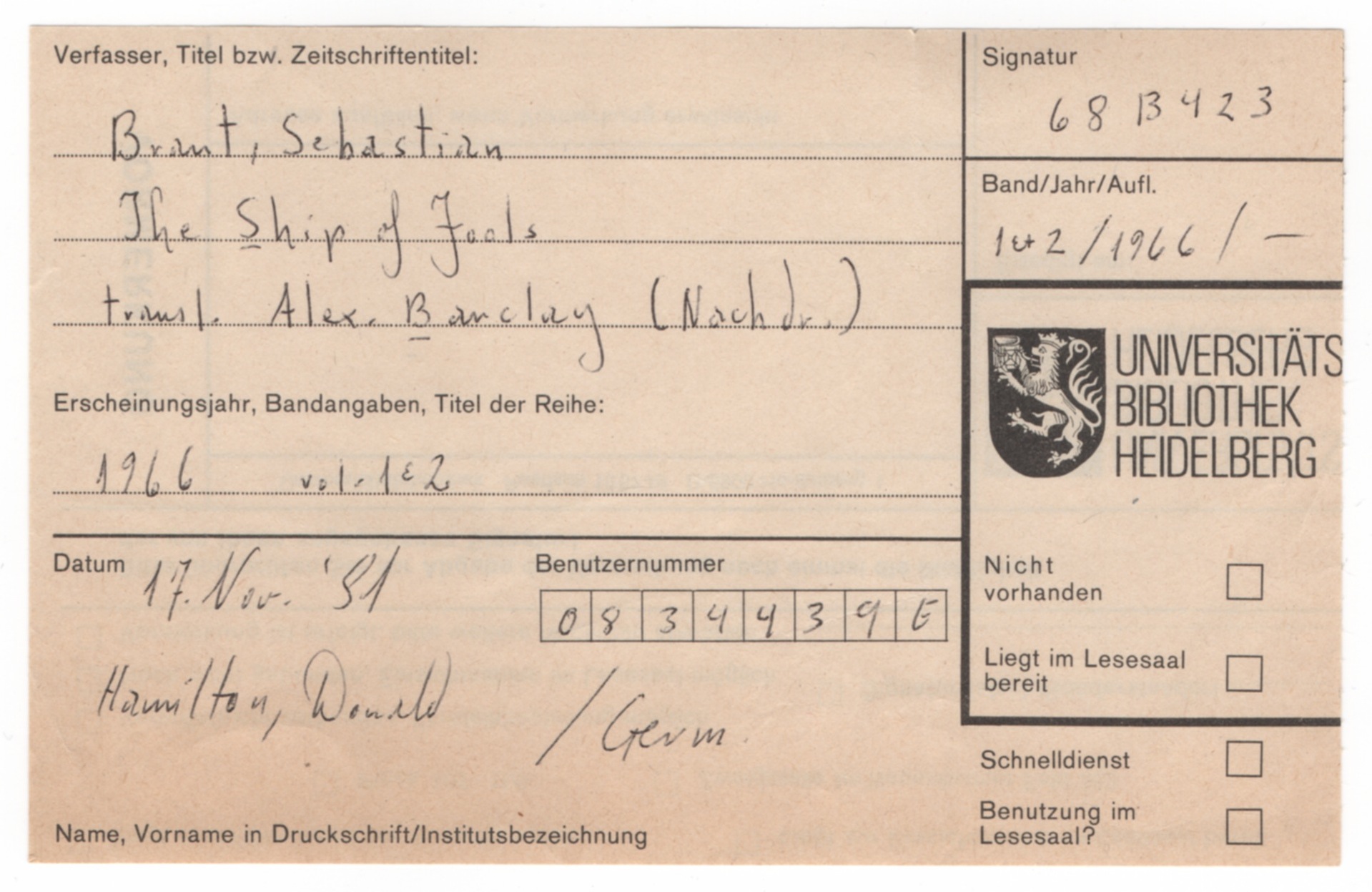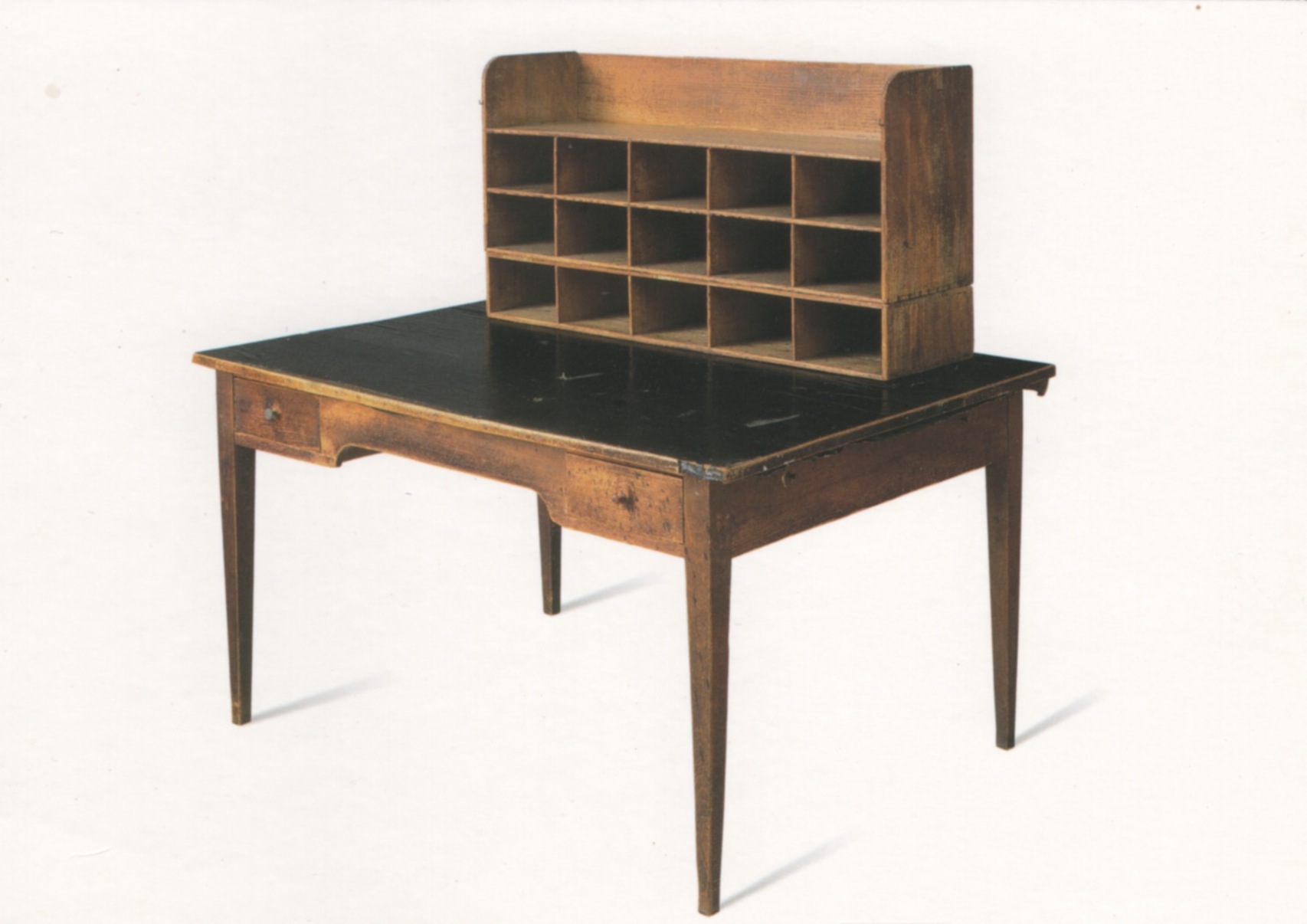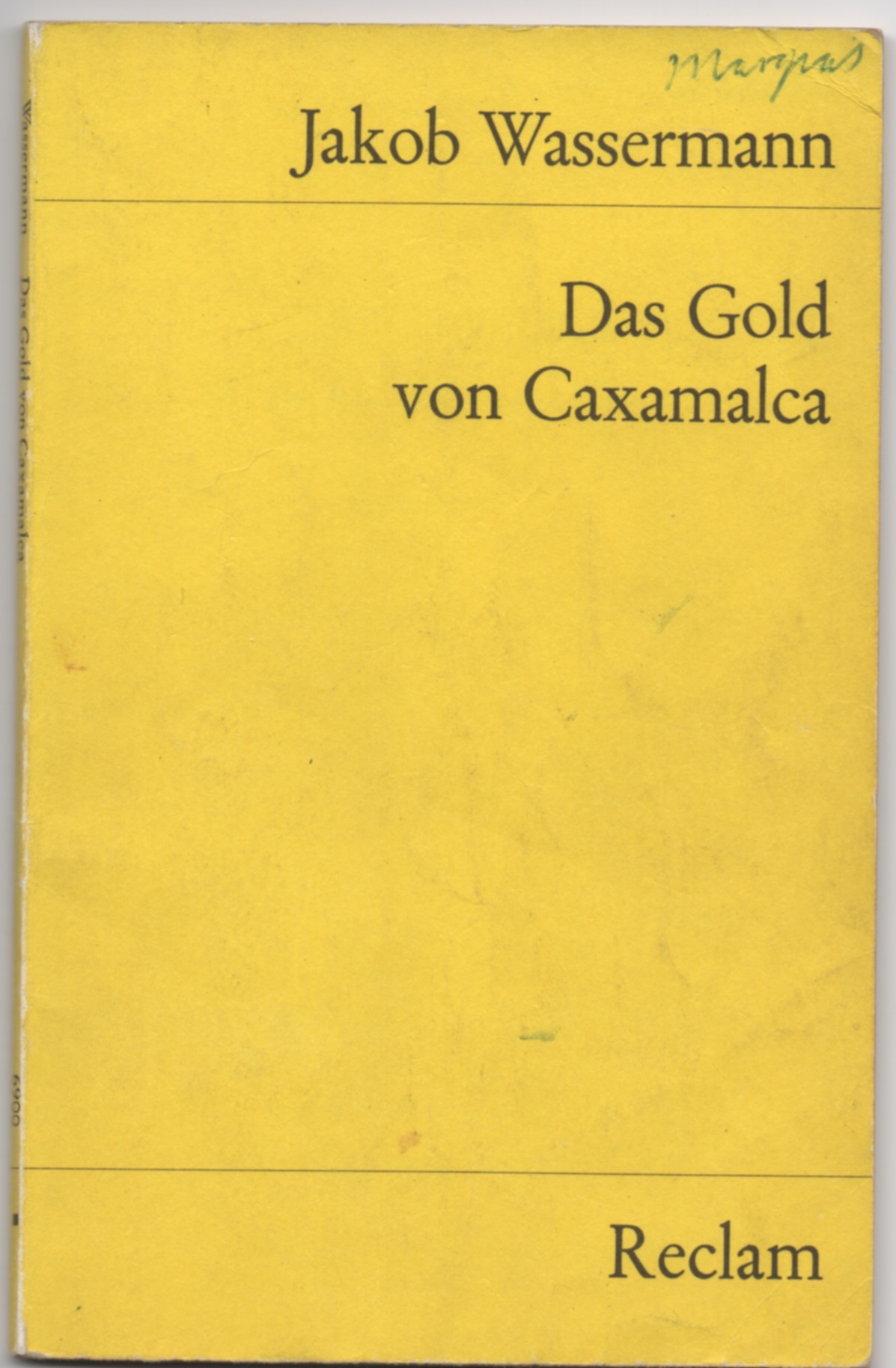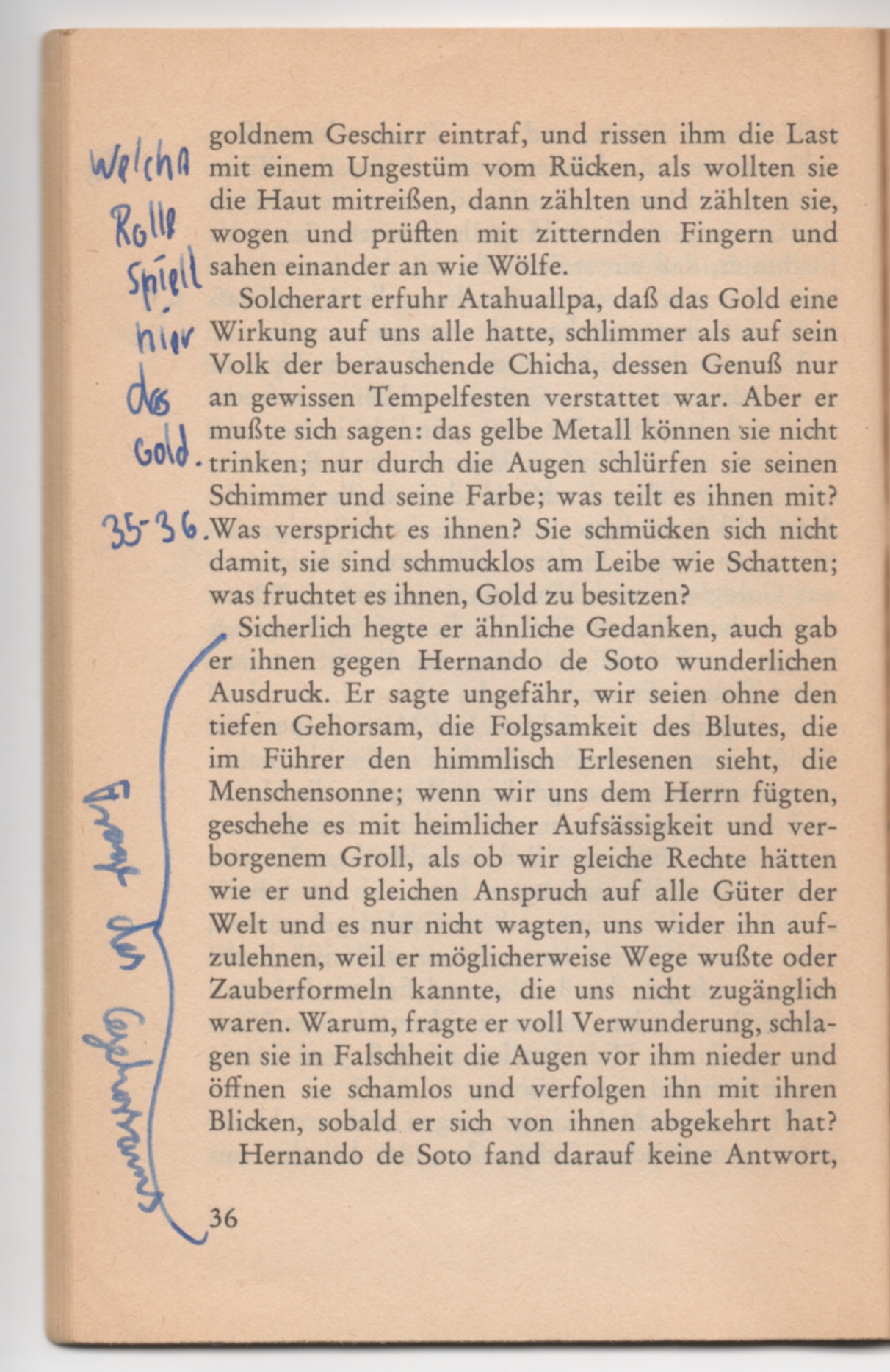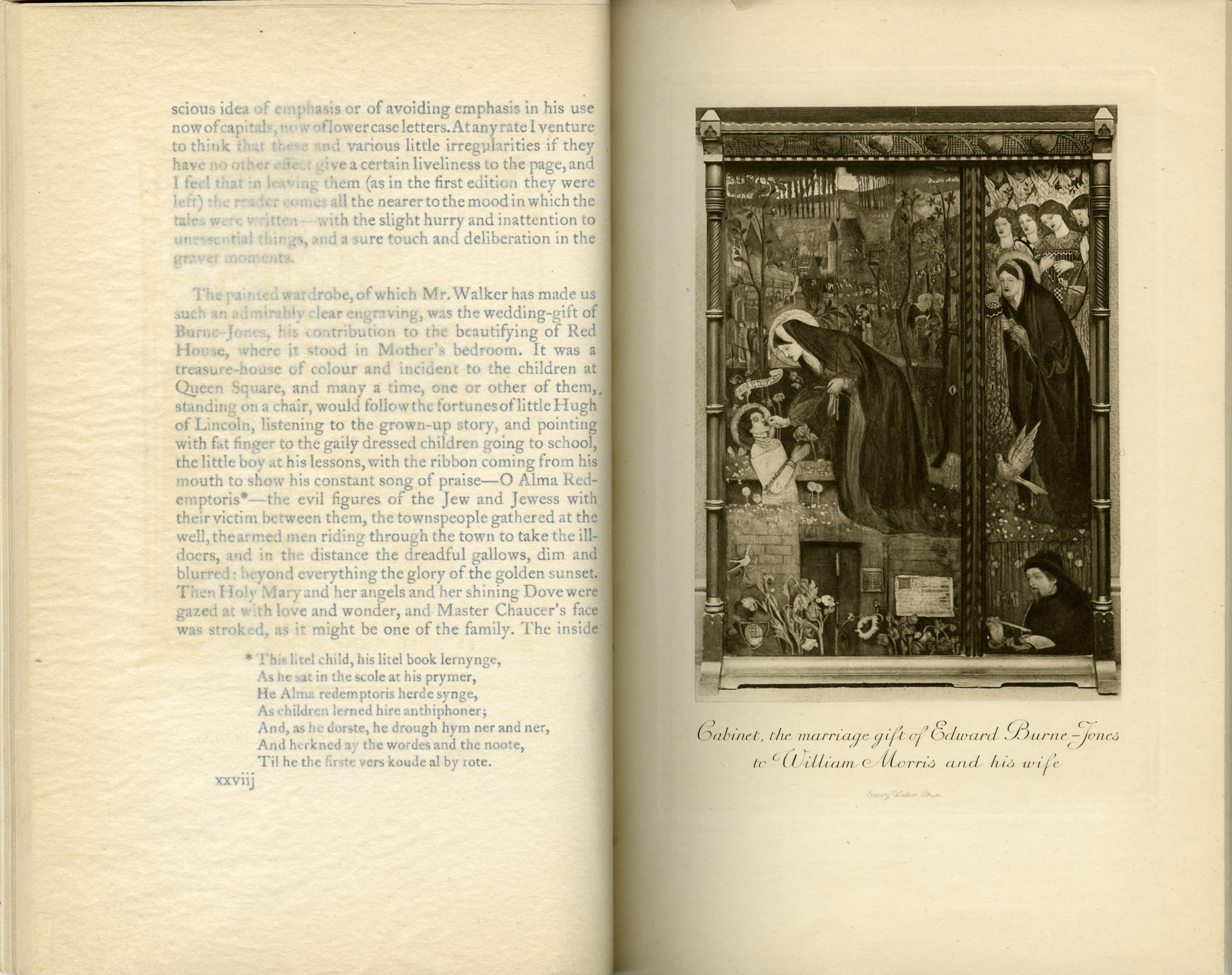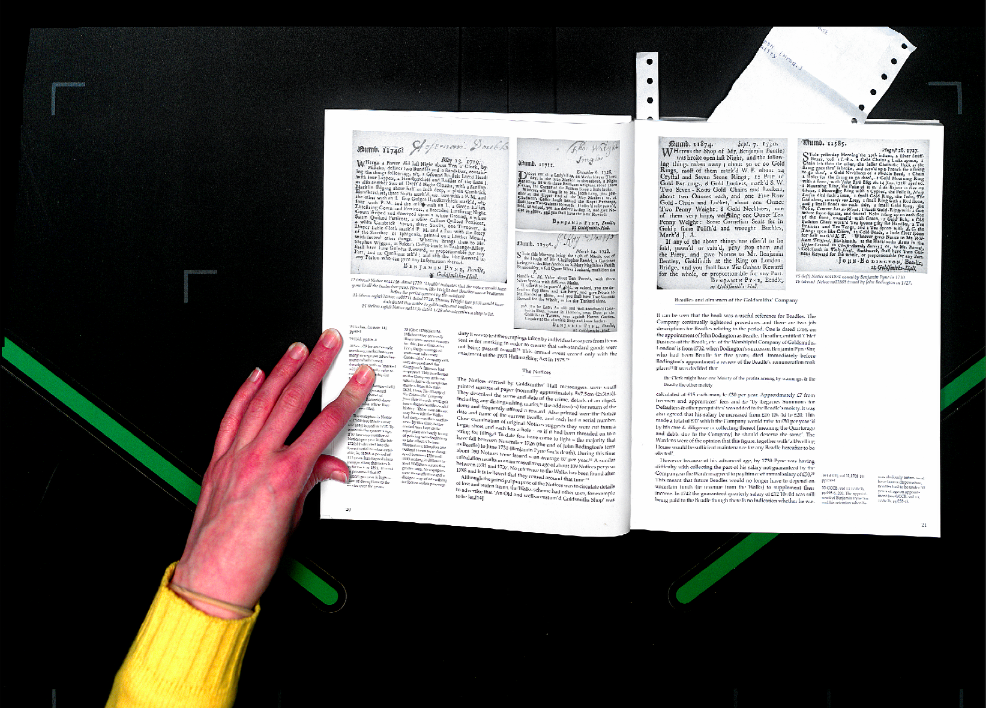An ad from a financial newspaper I saw this past fall. In contrast to the German ad for gold bars, with its emphasis on security (Wollen Sie ruhig schlafen?), of course the American one equates investing in precious metal with being a maverick.
Current Desktop Image
Melonenschnaps
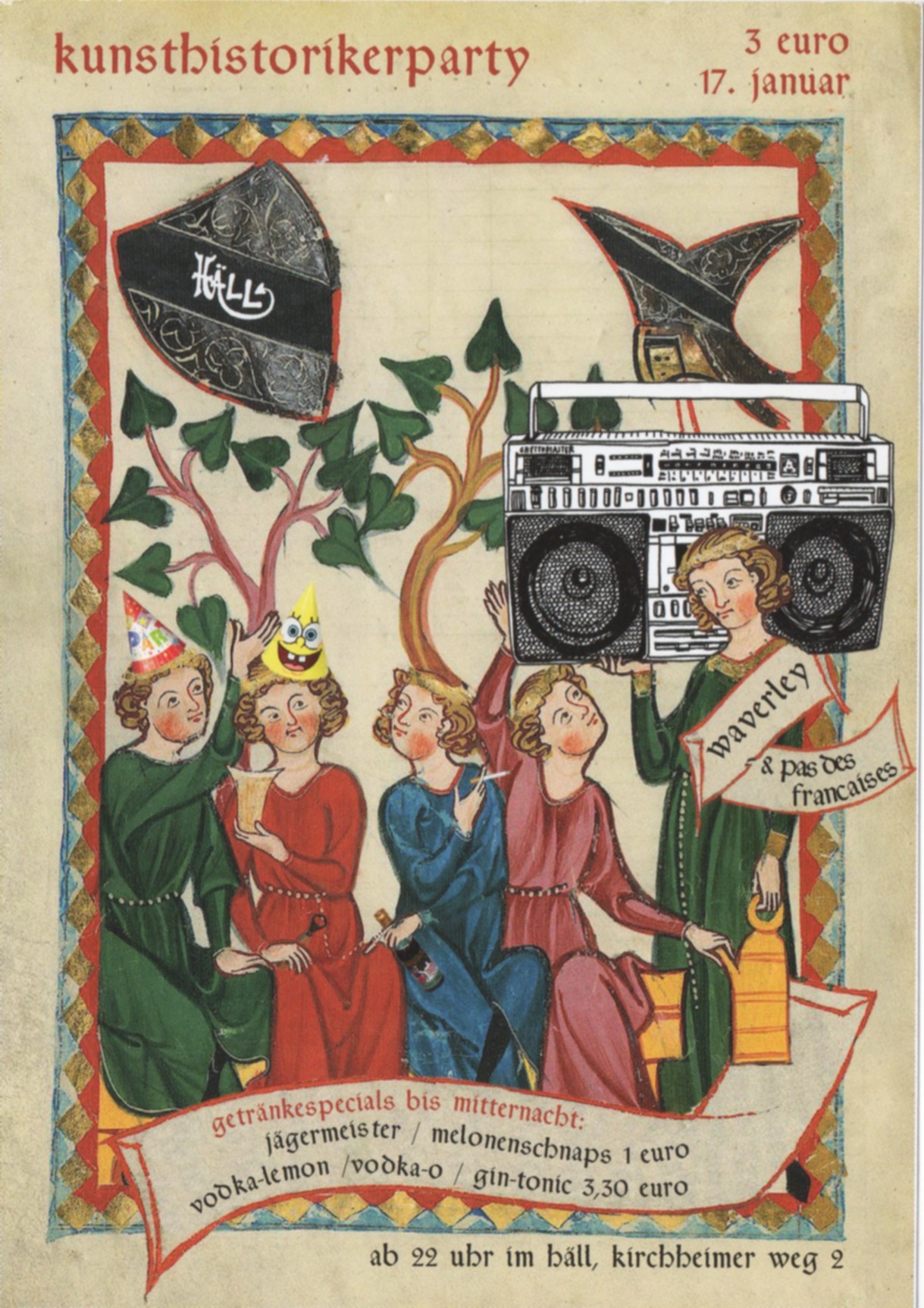 I liked this ad for a party thrown by art history majors at Heidelberg University in January. It takes a page from the world-famous Codex Manesse (which is housed in the university library) and slips some modern accoutrements (a cigarette, a bottle of Rothaus Pils, a boombox) into the fingers of its fourteenth-century figures.
I liked this ad for a party thrown by art history majors at Heidelberg University in January. It takes a page from the world-famous Codex Manesse (which is housed in the university library) and slips some modern accoutrements (a cigarette, a bottle of Rothaus Pils, a boombox) into the fingers of its fourteenth-century figures.
Breaking Through
In an interview several years ago with Ben Marcus for The Believer, Saunders defended the time spent in an M.F.A. program by saying, “The chances of a person breaking through their own habits and sloth and limited mind to actually write something that gets out there and matters to people are slim.” But it’s a mistake, he added, to think of writing programs in terms that are “too narrowly careerist. . . . Even for those thousands of young people who don’t get something out there, the process is still a noble one — the process of trying to say something, of working through craft issues and the worldview issues and the ego issues — all of this is character-building, and, God forbid, everything we do should have concrete career results. I’ve seen time and time again the way that the process of trying to say something dignifies and improves a person.”
– from a profile of George Saunders by Joel Lovell, New York Times, January 3, 2013
Balingen
 Zollernschloß, Balingen. Home of great little collection of weights and measures sponsored by the local scale-maker, Bezirba.
Zollernschloß, Balingen. Home of great little collection of weights and measures sponsored by the local scale-maker, Bezirba.
Ship of Fools, ’81
Jacob Burckhardt’s Desk
Second-Hand
Old Friend
Thanks to my profile on academia.edu, I’ve recently gotten to correspond about this old friend, the subject of my master’s thesis. It appeared last year in an exhibition at the Tate Gallery, its first loan (I believe) away from the Ashmolean since the First World War.
I remember a professor of mine once describing the experience of seeing paintings he had written a book about in a museum after many years. The expectation that the painting must recognize you in some way, be grateful for your attention, a reciprocation of your own feelings of familiarity. The humility that comes upon realizing that you are, of course, nothing to the object, just another museum visitor, and that it remains ever as inscrutable to you, despite the years of thought and labor.
